伊藤計劃『虐殺器官』あらすじと感想~ぜひおすすめしたい私の最も好きなSF小説!
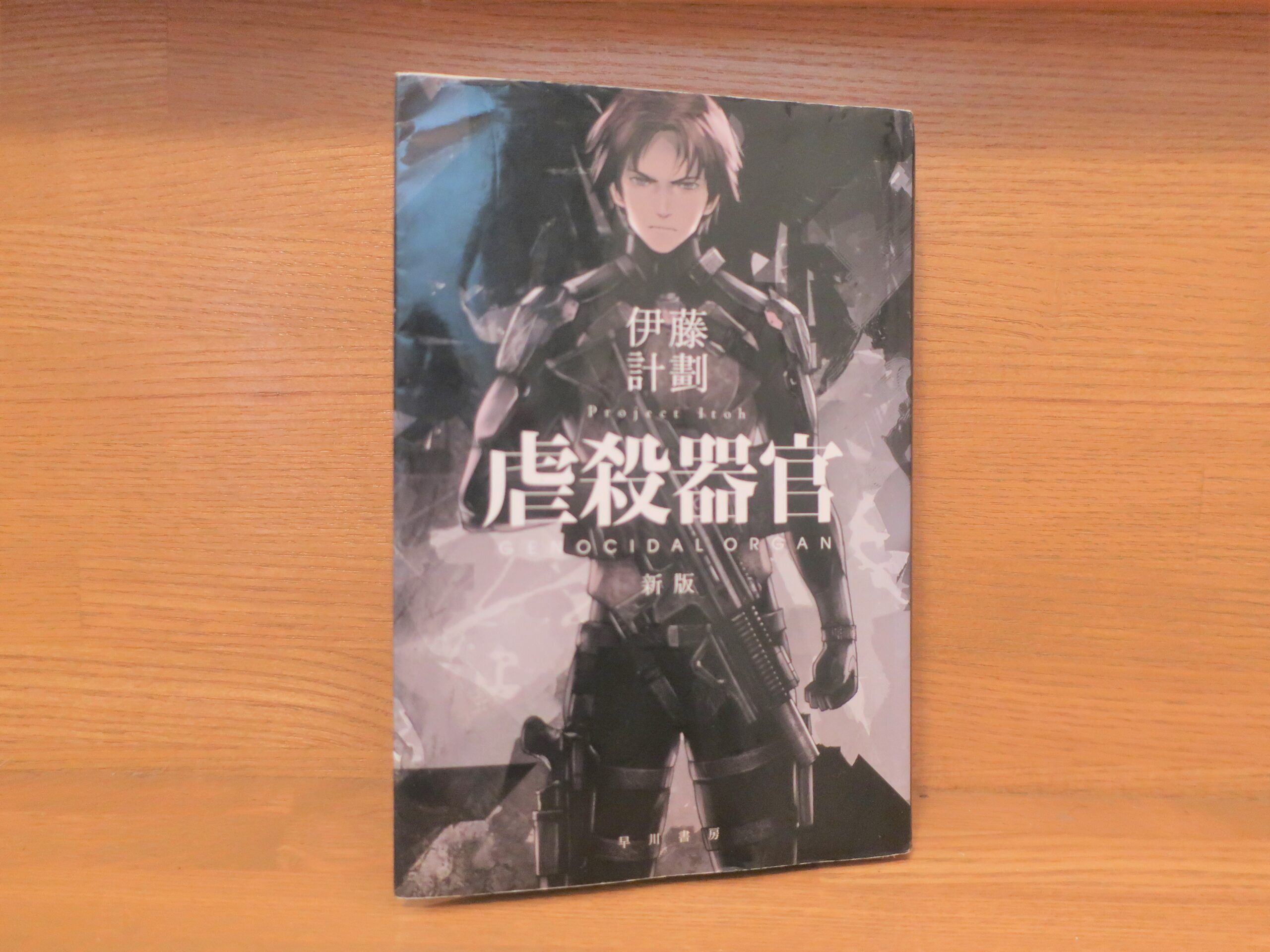
伊藤計劃『虐殺器官』あらすじと感想~ぜひおすすめしたい私の最も好きなSF小説!
今回ご紹介するのは2007年に早川書房より発行された伊藤計劃著『虐殺器官』です。
・・・ついにこの作品を当ブログで紹介できる日が来たかと、私は今、感無量でございます。
この作品はここ数年で私が最も愛した作品と言ってもいい小説です。
タイトルが『虐殺器官』という、およそ僧侶のブログではまず馴染まないであろうフレーズということもあり、ここまでなかなかこの作品を紹介する機会がないまま来てしまいましたが、独ソ戦、冷戦、ディストピア小説と来た今の流れならいけるであろうと、いよいよ勇んでの紹介になります。
では、この本について見ていきましょう。
9・11以降の“テロとの戦い”は転機を迎えていた。 先進諸国は徹底的な管理体制に移行してテロを一掃したが、 後進諸国では内戦や大規模虐殺が急激に増加していた。 米軍大尉クラヴィス・シェパードは、 その混乱の陰に常に存在が囁かれる謎の男、 ジョン・ポールを追ってチェコへと向かう…… 彼の目的とはいったいなにか? 大量殺戮を引き起こす“虐殺の器官”とは? 現代の罪と罰を描破する、ゼロ年代最高のフィクション
Amazon商品紹介ページより
私がこの作品と出会ったのはテレビでたまたま流れていたこの映画のCMでした。
おそらくこれよりも短いバージョンのCMだったと思うのですが、何か心に残るものがあったのか、「ふ~ん、こんな映画があるんだな」という感想を抱いたのを覚えています。
ですが、私はこの映画を観ることもなく、いつしかそのことも忘れ半年以上の時が過ぎることになりました。
そしてそんな中、私はいつものように書店でぶらぶら散策しているとふと目に留まった本があったのです。
それが『虐殺器官』でした。
その瞬間、「あぁ、あの映画には原作があったのか・・・!」と急にこの本に興味が湧き出しました。
「これは今読まねばならない」
私はそう直感しすぐにこの本を購入し、急ぎ帰ったのでした。そしてすぐに読み始めた・・・わけではなかったのです。
・・・、正直に申しましょう。
私はなぜかこの本を読まずにただ置いていただけなのでした。他に読まねばならない急ぎの本があったのも事実ですが、なぜかここまで来たのに手が伸びなかったのです。
不思議なものでここからまたしばらくの日にちが経ち、私がいよいよ読むことになったのは2017年の秋頃になってしまったのでした。
そしていよいよ読み始めてみると、その出だしからすぐに私は心を掴まれてしまったのです。
「何かはわからない。でも、この人の言葉は何かが違う・・・!」
私はあっという間にのめり込み、そこからはもう怒涛のようでした。
そして何より驚いたのは「この小説で語られていた問題」が「その時私が考えていたこと」と驚くほど重なっていたということでした。
一体私が何を言っているか読者の皆さんはさっぱりわからないと思います。
ざっくり言うならば、これまで私が勉強してきたことと、当時興味を持って追いかけていたことが全くそのままそこに描かれていたのです。例えば、
「私はどこからどこまでが『私』という固有の意識なのか」
「地獄はどこにあるのか」
「人間の意識も身体という物質に規定されていて、脳を分析したり刺激することで特定の思考や状態を作り出すことができる」
「人間と動物は本来別個の存在ではない」
「人間を動かす目には見えない大きな力、はたらきの存在。宗教と神話とのつながり」
「テロ、戦争、テクノロジー、新自由主義経済、グローバリズム、民間軍事会社、環境破壊、貧困」
などなど、他にも挙げようと思えばきりがないほどです。
そして何より驚いたのはこの小説で舞台になる国々の存在でした。
この時私はすでに2019年の世界一周の旅の計画を始めていた時期でした。その旅は私が学生時代からずっと学び続けてきた「宗教とは何か」「人間とは何か」を探究する集大成として描いていたものでした。
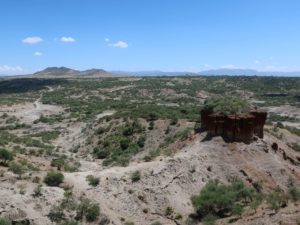
そのルートは最終的にタンザニア→トルコ→イスラエル→ポーランド→チェコ(プラハ)→オーストリア→ボスニア・ヘルツェゴビナ(サラエボ)→クロアチア→イタリア・バチカン→スペイン→アメリカ(ニューヨーク・ワシントン)→キューバというものになります。
『虐殺器官』を読んだ方ならピンとくるものがあると思います。
そうです。私が訪れた国と『虐殺器官』の舞台が見事に重なっていたのです。この作品もアメリカ、プラハ、サラエボ、タンザニアが主要舞台として出てきます。インドのムンバイもこの作品でとても重要な位置を占めていますが、ここも乗り継ぎだけでしたが私も訪れています。
私のテーマ、関心と伊藤計劃さんが作品で述べることの驚くべき重なり。そして主人公が訪れた国まで被っていたという事実に私は衝撃を受けてしまいました。「こんなことがあるのだろうか!」と。
しかも面白いことに、私が初めて虐殺器官のCMを観て、本を買った段階ではまだ旅のことは考えていませんでした。
旅のことを思い立ち、計画してからこの本を読み始めているのです。
私がこの本を読まないでそのままにしていたのは全くの偶然です。ですが、この偶然の恐ろしさには鳥肌が立つほどでした。
私は行くべくしてこの旅に出るのか。この作品は私を後押ししてくれているのか。
私はこの作品に信じられないほどのめり込んでしまい、何度も何度も読み返しました。何回読んでも飽きないんです。読む度に愛しくなっていきます。
私はこの本を世界一周の旅のお供に決めました。
私は機内持ち込みだけの荷物で旅をする予定だったので、荷物は出来る限り小さくしなければなりません。本を一冊持っていくだけでも命取りです。
ですがどうしてもこの本だけは持っていきたい!「無人島に持っていくならこの1冊」の感覚で私はなんとかキャリーバックにねじ込んだのでした。
それだけこの本は私にとって思い入れのある本です。
・・・ですが、それにしても、なぜ私がこの本にこれだけ惚れ込んだのか。
先程も申しましたように、この小説で語られるテーマや思想に共鳴したのはもちろんです。
ですがさらに大きかったのは、伊藤計劃さんの独特の語り口にあると思います。
その語り口について巻末の解説では次のように述べられていました。少し長くなりますがこの小説の特徴を知る上でも重要なのでじっくり読んでいきます。
物語の背景は、モスレム原理主義の手作り核爆弾によってサラエボが消失し、〝テロとの戦い〟が新たなステージに入った近未来(おそらくニ〇ニ〇年前後)。先進諸国では、市民の監視を徹底することで、自由とひきかえに安全を手に入れたかに見えたが、その一方、発展途上国では内戦と民族紛争が頻発しはじめる。
一人称主人公の〝ぼく〟こと、クラヴィス・シェパードは、暗殺を専門とするアメリカ情報軍特殊検索群i分遣隊の大尉。心理操作とハイテク装備によって優秀な殺戮機械となり、紛争地域へと潜入して任務を遂行する。その新たなターゲットとして浮上したのが、各地で起きる不可解な虐殺の背後でつねに見え隠れする謎の米国人、ジョン・ポール。その影を追って、〝ぼく〟は悲惨な虐殺の現場へと赴く……。(中略)
小説の枠組は、国際軍事謀略サスぺンス。死体の山が築かれる冒頭の戦闘シーンから、迫真のディテールが読者を鷲掴みにする(初読時に強く連想したのはルーシャス・シェパードが魔術的リアリズムを駆使して近未来の戦争を描いた『戦時生活』だったが、『虐殺器官』を書いた時点では、著者は未読だったという。)作戦行動用に感情を鈍麻させた〝ぼく〟の淡々とした語りが印象的だ。戦争アクションには不似合いなこの文体は、最初から意図したものだったらしい。オンラインSF誌「Anima Solaris」のメールによるインタビュー(http://www.sf-fantasy.com/magazine/interview/071101.shtml)に答えて、著者はこう語っている。
〈「一人称で戦争を描く、主人公は成熟していない、成熟が不可能なテクノロジーがあるからである」というのは最初から決めていました。ある種のテクノロジーによって、戦場という、それこそ身も蓋もない圧倒的な現実のさなかに在ってもなお成熟することが封じられ、それをナイーブな一人称で描く、というコンセプトです。(中略)
以前から伊藤計劃のブログを愛読していたという佐藤亜紀は、本書刊行の直後、『虐殺器官』について、ウェブ日記(http://tamanoir.air-nifty.com/jours/2007/07/) で次のようにコメントしている。
〈……一読して感じ入ったのはその繊細さだ。もちろん題材は、タイトルと表紙に偽りなく、凄まじい訳だが、にも拘らず、ちょっとないくらい繊細なのだ。凡百の繊細ぶった、その実どうしようもなく粗野な代物とは対極にある、題材に対する繊細さ。その背景の現実に対する繊細さ。(中略)『虐殺器官』は単なる近未来SFではなく、NV的軍事行動小説で終るものでもなく、今ここにおける切実な事柄を拾い上げ、見詰め、語った小説―まさに今、私やあなたのいる世界で起っていることを語った小説だ〉
早川書房、伊藤計劃『虐殺器官〔新版〕』P412-415
ここで述べられるように、主人公シェパードを通して語られる言葉の繊細さ、ナイーブさ。これこそ伊藤計劃さんの味です。
伊藤計劃さんはこの小説の重い世界観においてあえて軍人らしからぬ繊細でナイーブな語りを導入しています。これが見事にはまっています。私はこの語りにやられてしまいました。
この語りは伊藤計劃さんが手がけたノベライズ小説『メタルギア ソリッド4 ガンズ・オブ・ザ・パトリオット』でも健在です。
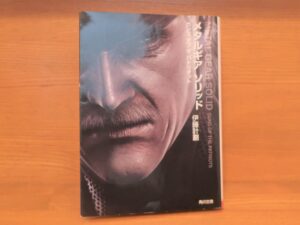
こちらはスネークの相棒オタコンの語りという形で書かれた小説ですが、『虐殺器官』で冴えわたった独特の一人称語りがそこでも輝いています。
伊藤計劃さんの繊細な語り口は唯一無二です。
この作品で伊藤計劃さんの語りを気に入ったならば、彼の珠玉の短編集『The Indifference Engine』も非常におすすめです。メタルギアシリーズや『虐殺器官』に直結する傑作短編がずらりと掲載されています。こちらもものすごく面白いです。『虐殺器官』ファン必読の書です。ぜひぜひおすすめしたいです。
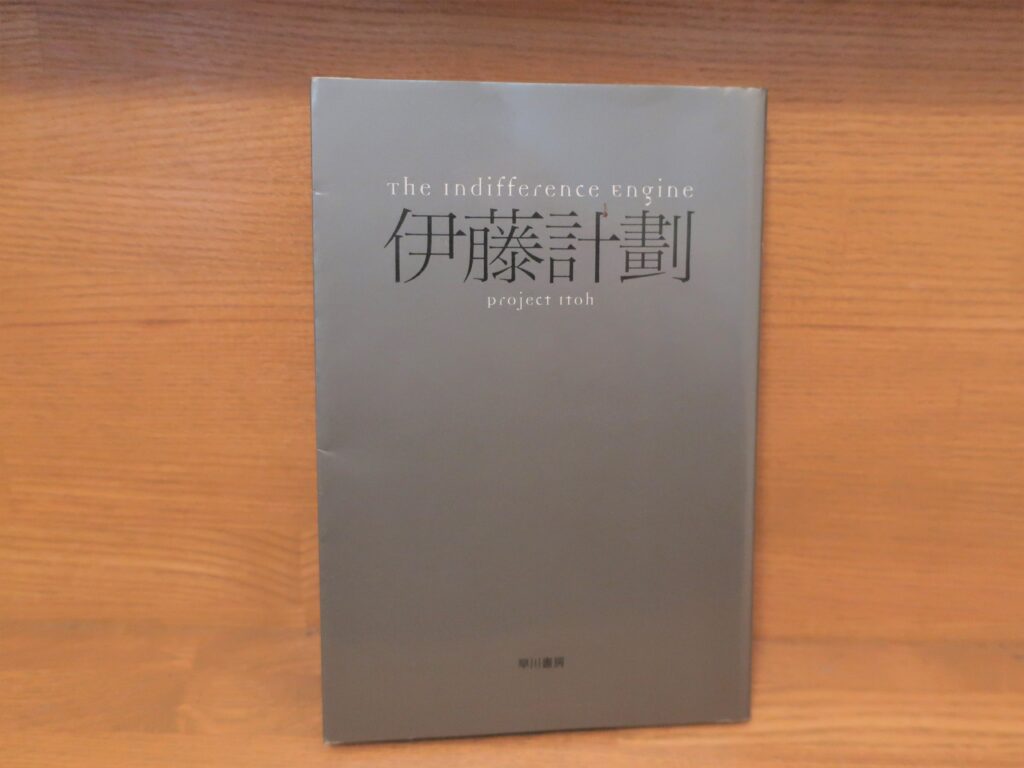
さて、ここまで伊藤計劃さんの『虐殺器官』についてお話ししてきましたが、好きな所をひとつひとつ挙げて行ったらそれこそ長大な論文になってしまいかねない勢いです。ですのでこの記事ではあまり詳しくはお話しできませんでしたが、この作品は名作中の名作です。もう10回以上読み返しているのですがまったく飽きません。私の愛する作品です。
ぜひぜひおすすめしたい作品です。
以上、「伊藤計劃『虐殺器官』あらすじと感想~ぜひおすすめしたい私の最も好きなSF小説!」でした。
Amazon商品ページはこちら↓
次のページはこちら
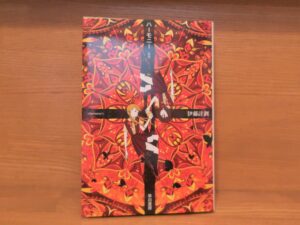
前のページはこちら

関連記事


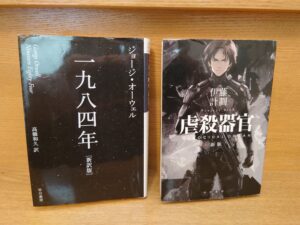

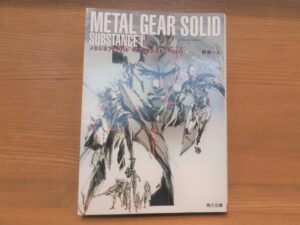
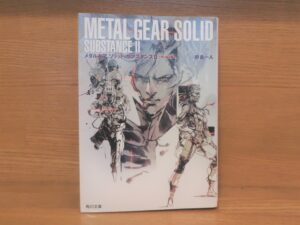
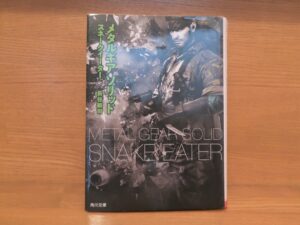
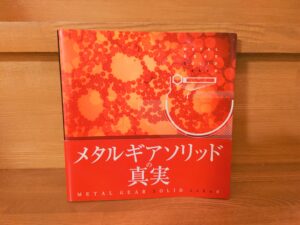


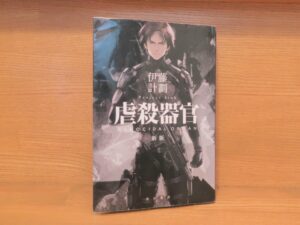
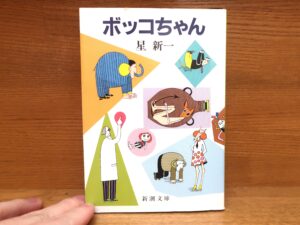
コメント